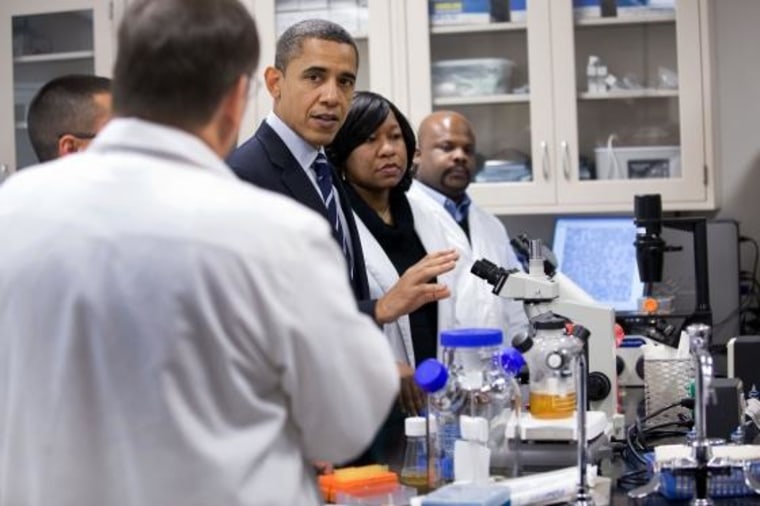SAN JOSE, Calif. — In a newly published survey, an overwhelming majority of scientists say it's important for them to take an active role in public policy debates — and are doing it mostly through face-to-face encounters with the public. The Pew Research Center's survey also suggests that social media channels such as Facebook and Twitter are taking hold as well.
Pew's analysis is based on an online survey of 3,748 U.S.-based members of the American Association for the Advancement of Science, and was released on Sunday during AAAS' annual meeting in San Jose. The results show that 87 percent of the respondents said scientists should be involved in policy debates, as opposed to 13 percent who said scientists should just stick to doing science and avoid the debates.
The survey came out as policymakers are dealing with issues such as climate change and childhood immunization, where the science plays a key role in the debate. Sunday's report follows up on an earlier report showing that scientists and the wider public had significantly different attitudes toward such issues.

In the newly released results, 98 percent of the scientists surveyed said they engage with the public through meetings with citizens, while 51 percent said they have had at least some contact with the news media about their research. Forty-seven percent said they've used social media to keep up with developments in their field.
The results vary by age and discipline. For example, 70 percent of the scientists in the 18-34 age bracket use social media, while the corresponding figure for the over-65 set is 30 percent. Also, researchers in the social sciences or Earth sciences reported higher engagement with the public than those in, say, chemistry or computer science.
As previously reported, the biggest problem that scientists saw in the policy arena was that members of the public don't know very much about science — closely followed by concern about unfounded reports in the news media.
Update for 11:30 a.m. ET Feb. 15: One twist to this survey is that the first step was to invite AAAS members to participate. Although the survey sample was selected for participation on a random basis with demographic factors in mind, the methodology means that the sample doesn't represent non-AAAS members, or AAAS members who did not respond to the invitation.
IN-DEPTH
- Scientists and Public Are at Odds on Policy Issues
- Experts Weigh Strategies in Vaccine Debate
- Poll Favors Politicians Who Fight Climate Change